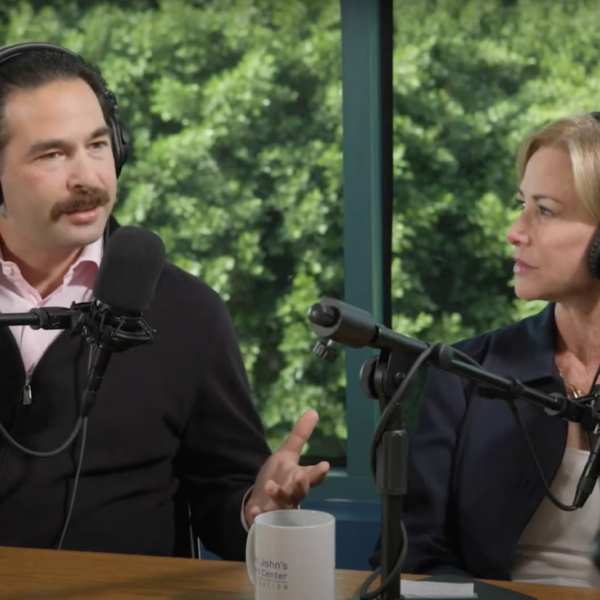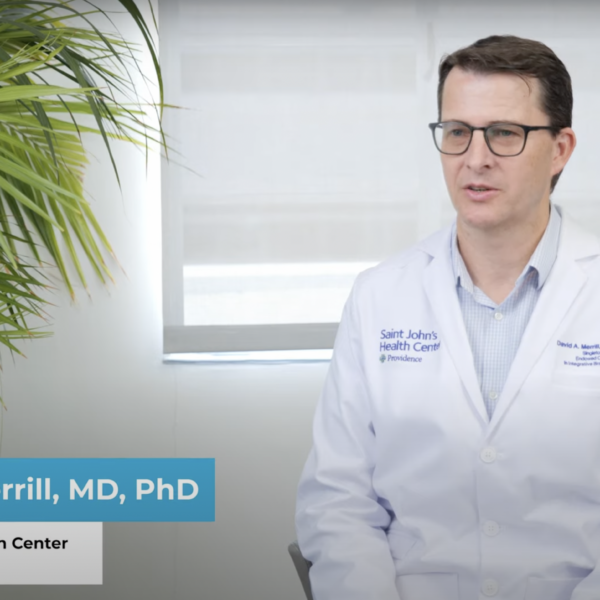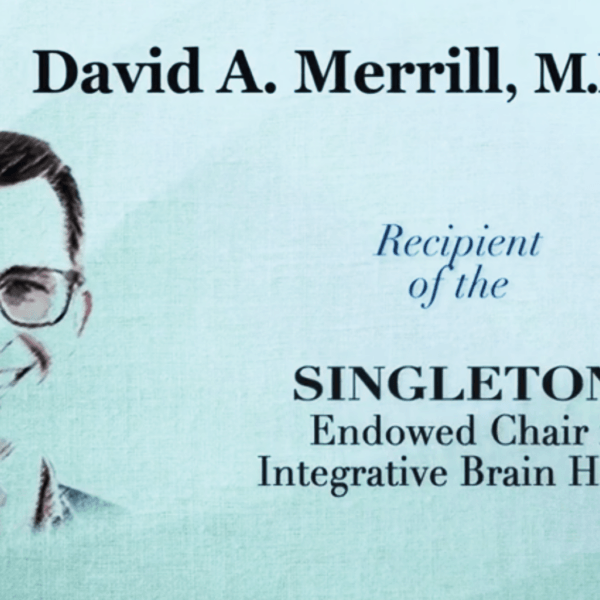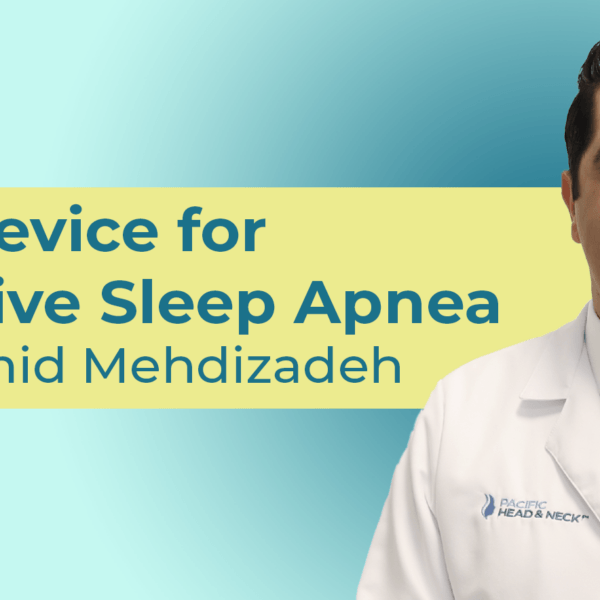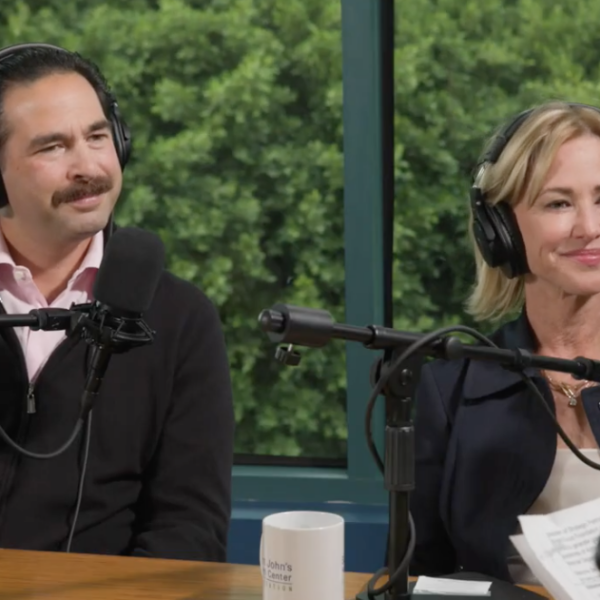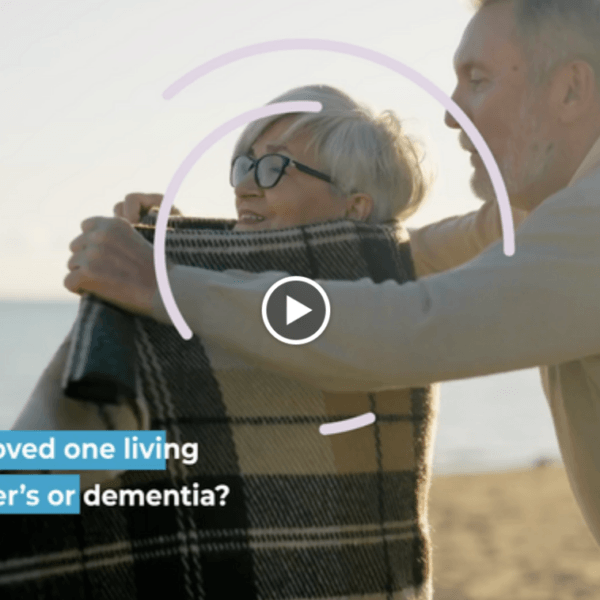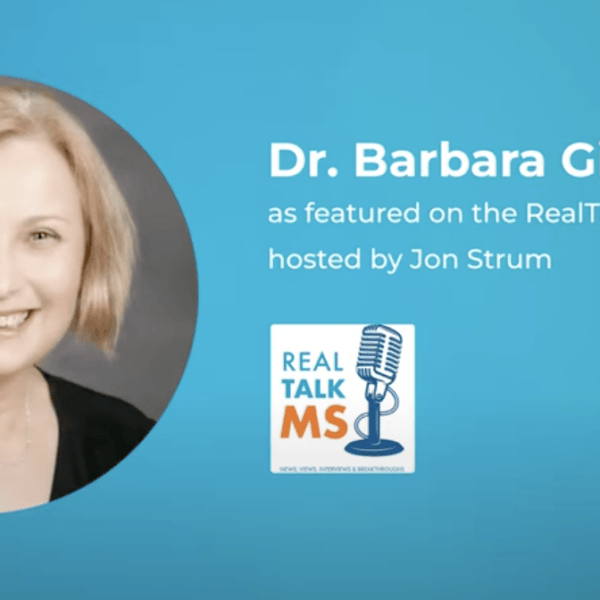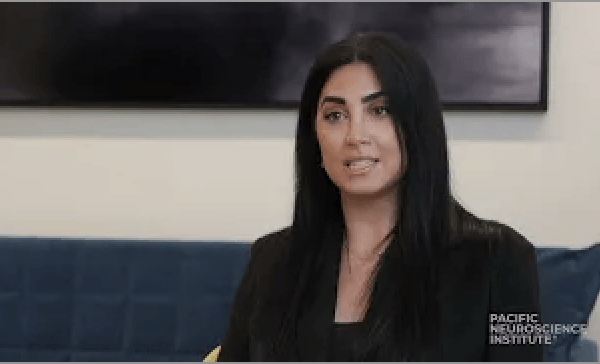Brain Health
Video
Early Warning Signs of Multiple Sclerosis (MS)
Did you know that Multiple Sclerosis, or MS, can affect your entire body from your brain to your toes? Symptoms can vary from one person to the next, depending on what part of your Central Nervous System.
Discover the early warning signs of MS with Pacific Neuroscience Institute's specialist Barbara Giesser, MD.
Learn more about Multiple Sclerosis by visiting PacificNeuro.org/MS.
Video
Alzheimer’s: What You Need to Know | Scott A. Kaiser, MD – Guest Podcast
Alzheimer’s disease is a progressive neurological disorder that affects the brain’s function and causes a gradual decline in cognitive function, including memory, thinking, and behavior. It is the most common cause of dementia, accounting for approximately 70% of all cases of dementia.
The exact cause of Alzheimer’s disease is not fully understood, but it is believed to be a combination of genetic, environmental, and lifestyle factors. The disease is characterized by the accumulation of abnormal proteins in the brain, which interfere with the communication between brain cells and cause their death over time.
There is no cure for Alzheimer’s disease, but there are medications available that can help manage the symptoms and slow the progression of the disease. These medications work by increasing the levels of neurotransmitters in the brain, which can improve communication between brain cells and delay the onset of more severe symptoms.
Lifestyle changes, such as regular exercise, a healthy diet, and cognitive stimulation, may also be helpful in managing the symptoms of Alzheimer’s disease. Additionally, it is essential to work closely with a healthcare professional experienced in treating Alzheimer’s disease to develop an appropriate treatment plan.
While Alzheimer’s disease is a devastating condition that affects millions of people worldwide, early detection and treatment can help individuals maintain their quality of life for as long as possible.
Dr. Scott Kaiser, a board-certified family physician and geriatrician, is the Director of Geriatric Cognitive Health and provides specialty geriatric medical consultations at the Pacific Brain Health Center. Focused on the needs of older patients, he works with his colleagues to provide an integrated and holistic approach to their cognitive challenges. With this “whole person” approach, Dr. Kaiser works to connect patients and their families with a broad range of resources to support their overall health and well being.
Video
Precision Brain Health Factors for Successful Brain Aging with Dr. David Merrill | A PNI Minute
Precision Brain Health at Pacific Neuroscience Institute is a program that utilizes a formalized system to comprehensively address neurodegenerative disease. It addresses at both clinical and lifestyle components impacting brain heath.
Dr. David Merrill, director of the brain health center at PNI details the ReCODE Protocol (pioneered by Dr. Dale Bredesen) which has emerged as a viable attempt to prevent, arrest, and reverse symptoms of cognitive decline associated with conditions such as Alzheimer’s disease, other dementias, and mild cognitive impairment.
More than six million Americans live with Alzheimer’s disease—the most common type of dementia—suffering progressing symptoms of memory loss, confusion, behavioral change, and the loss of body control. Unfortunately, hundreds of clinical trials to develop drugs to help combat cognitive decline have resulted in disappointment. A reason is that cognitive decline is a complex and chronic process that develops silently over many years and often decades.
Treatment requires a multimodal approach. At Precision Brain Health, expert providers can ‘prescribe’ lifestyle interventions such as exercise and nutrition recommendations, as well as other precision health interventions. So far, results from clinical trials, and evidence-based lifestyle practices suggest that with this multipronged approach, we may begin to see substantial numbers of dementia patients achieve a slowing and, in some cases, even a sustained reversal of cognitive and memory decline.
Is Alzheimer’s disease is becoming optional? Dr. Merrill and his colleagues are optimistic outcomes will continue to improve.
Video
David Merrill MD PhD | Endowed Chair in Integrative Brain Health 2024
Dr David Merrill:
https://www.pacificneuroscienceinstitute.org/people/david-merrill/
Pacific Brain Health Center:
https://www.pacificneuroscienceinstitute.org/brain-health/
On May 30, 2024, we had the honor of celebrating Dr. David A. Merrill, MD, PhD, at Saint John’s Health Center Foundation's inaugural Endowed Chair Investiture Ceremony held at the Brentwood Country Club. 🎉
Dr. Merrill was awarded the prestigious Singleton Endowed Chair in Integrative Brain Health, a significant milestone in his distinguished career.
Endowed chairs are a powerful testament to philanthropy, ensuring ongoing support for cutting-edge research, innovative treatments, and exceptional patient care.
Congratulations, Dr. Merrill, on this well-deserved recognition! 🎓👏
Learn more about the ceremony here: https://saintjohnsfoundation.org/story/sjhcf-endowed-chair-ceremony/
#EndowedChair #BrainHealth #HealthcareExcellence #Congratulations #Philanthropy
Video
Inspire Implant for Obstructive Sleep Apnea with Dr. Omid Mehdizadeh | May 2024
Have you ever woken up feeling groggy and tired? That’s because sleep directly impacts our brain function. Getting 7 hours of good sleep each night is a key factor in preserving brain health, especially as we age. Sleep disruption can lead to fatigue, irritability, lack of focus, depression, and overall quality of life issues. According to the Centers for Disease Control, three in four adults in the U.S. have a sleep disorder. Among the most common is Obstructive Sleep Apnea (OSA), where the upper airway becomes blocked during sleep, leading to breathing interference. Recognizable symptoms of OSA include loud snoring, gasping/choking for air during sleep, excessive daytime sleepiness, and headaches, among others. Learn more.
310-477-5558
https://www.pacificneuroscienceinstitute.org/eye-ent/nose-sinus/treatment/surgery-sleep-apnea/
https://www.pacificneuroscienceinstitute.org/eye-ent/our-center/schedule-a-consultation/
Video
Alzheimer’s – What You Need to Know with Dr. Scott Kaiser
Dr. Scott Kaiser from Pacific Neuroscience Institute and Nancy Lynn from Bright Focus Foundation speak with Host Kym Douglas on Your Daily Dose from Saint John's Health Center Foundation.
Video
Are you living with Alzheimer’s or dementia?
PNI's Brain Wellness & Lifestyle program offers personalized courses to support you with diet, exercise, and cognitive activities, designed to strengthen memory and slow the progression of Alzheimer’s and dementia.
Contact us today:
https://www.pacificneuroscienceinstitute.org/brain-health/lifestyle/#contact
PacificLifestyle.org
213-344-2037
2024 Q3 0:30 Promo
Video
Choosing Your MS Disease-Modifying Therapy with Dr. Barbara Giesser
From Episode 350 of the RealTalkMS podcast with John Strum from the National Multiple Sclerosis Society. May 2024
There are more than 20 disease-modifying therapies available to treat MS today. Some are considered high-efficacy, some are considered moderately effective, and each has its own risk profile and side effects to consider. So, how do you choose?
How much homework should someone living with MS do? Where should you look for reliable information? And what if you and your neurologist don't necessarily agree?
Dr. Barbara Giesser joins John Strum of the RealTalkMS podcast from the National Multiple Sclerosis Society to talk about your role when it comes to choosing the right DMT through shared decision-making with your neurologist. An internationally recognized clinician and award-winning educator, Dr. Giesser has specialized in the care of people with multiple sclerosis since 1982, a full decade before there was even a single disease-modifying therapy available to treat MS.
Listen to learn more.
https://www.pacificneuroscienceinstitute.org/brain-health/conditions-treatment/multiple-sclerosis/
Consultation: https://www.pacificneuroscienceinstitute.org/brain-health/schedule-a-consultation-multiple-sclerosis/
Clinic: 310-582-7613
Video
The Impact of Stress on Memory with Dr. Shannel Elhelou | A PNI Minute
Stress can significantly impact the brain and body. Cortisol production in the brain increases. It is a stress hormone regulated by the hypothalamus which is responsible for our fight or flight response. This is your brain's response to danger. Chronic stress can lead to structural changes in the hippocampus, which is also our memory center. So those that experience chronic stress are more likely to experience changes in their memory abilities.
Learn how to manage stress using techniques like meditation, deep breathing and forest bathing, so that when you're stressed, you'll be more able to engage in these practices. If you're experiencing stress related to your daily life, cognitive changes or cognitive changes in a loved one, please reach out to the Brain Wellness & Lifestyle program.
https://www.pacificneuroscienceinstitute.org/brain-health/lifestyle/
213-344-2037
Lifestyle@pacificneuro.org
Video
Exercise & Nutrition with Molly Rapozo, MS, RDN
213-344-2037 | Lifestyle@pacificneuro.org
https://www.pacificneuroscienceinstitute.org/brain-health/lifestyle/
Join Molly Rapozo, MS, RDN for this in-depth 4-part series of webinars to learn practical techniques for optimizing your brain health and life.
1. Stress Management & Sleep
2. Exercise & Nutrition
3. Socialization & Cognitive Training
4. Cognition Across the Lifespan
Presented by Brain Wellness & Lifestyle at Pacific Neuroscience Institute. These videos were made possible through the support of the LA County Department of Mental Health and CalMHSA. May 2024.
Note: This content is not intended as medical advice nor does it replace medical advice you have received. Speak with your doctor prior to implementing any lifestyle changes.

